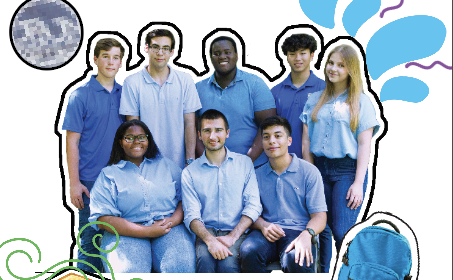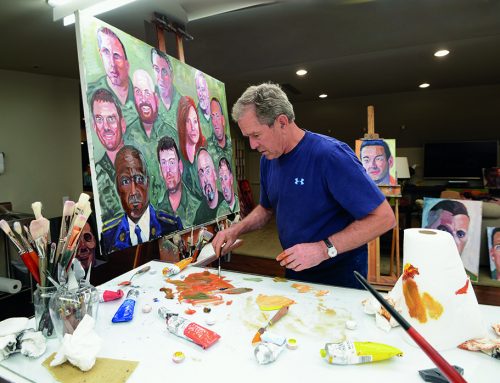
When four local teenagers learned about people experiencing homelessness at school, they began noticing how many people in their community were unhoused. The group put supplies into backpacks, filled their cars and handed out the supplies to people experiencing homelessness whenever they could.
Their inspiration began seven years ago when a Plano teen was inspired by the people he saw experiencing homelessness every day along the Dallas North Tollway service road. To help, he started filling bags with water bottles, protein bars, beef jerky and Subway meal gift cards and gave them out as he saw people in need. He called it a LifePak.
Four students at his former middle school learned about the project and decided to carry on his legacy. These students, now seniors at various high schools in the area, call themselves the LifePak Initiative and have taken on the goal of helping as many people experiencing homelessness as they can through backpacks filled with food, water and other necessities by partnering with other neighborhood teens and nonprofit organizations.
Though COVID-19 made conducting safe donation drives difficult, the LifePak Initiative has completed 16 donation drives in neighborhood schools and distributed 450 LifePaks, 160 winter coats, 420 knitted hats, 140 winter gloves, 120 woven scarves, 160 baseball caps and 240 pairs of socks. As the students distribute more LifePaks, they’ve adjusted the contents according to needs that arise. The meals started out as sandwiches and chips, but the group felt driven to do more.
After partnering with the local nonprofit Cooking for the Crowd, the LifePak Initiative has cooked and delivered more than 720 hot meals. Other groups have shifted goals to partner with the LifePak Initiative as well, including Passing Hats, which shifted from delivering knitted hats to cancer patients to donating to the homeless population, and the Jesuit Ranger Trap & Skeet Team, which contributed winter clothing that was handed out with LifePaks.
“Our goal is mainly to spread the word and influence our generation to go out and help others and reach more people to help others that are experiencing homelessness,” Acosta says.
Jesuit senior Nicholas Archer is one of these founding members. His schedule is packed with cycling team practices and school and familial responsibilities, and he isn’t the only one. Fellow founders and Plano West Senior High school seniors Julian and Jaimi Coleman are active in theater, and Naaman Forest senior Victor Acosta is a martial arts instructor.
Yet, the four spend their free time filling backpacks with resources for people experiencing homelessness in their communities and around Plano and Dallas.
“I have family members and a lot of people I care about that have ended up on the streets due to an unfair situation, so I sympathize with these people out there,” Acosta says. “I feel like it’s part of my obligation as a person who was able to get out of that situation to help others.”
Throughout the past few years, the LifePak Initiative has developed relationships with neighborhood schools to develop donation drives at Frankford Middle School, Shepton High School, Plano West High School, Jesuit College Preparatory School, Barack Obama Male Leadership Academy and Naaman Forest High School. Each school was also given posters, flyers, ads and donation boxes to promote the LifePak Initiative’s mission.
“The big thing about what we do is relationships,” Julian Coleman says. “Without these relationships with these different schools and districts, we wouldn’t be able to do what we do.”
All four members are working to find others to take over The LifePak Initiative when they graduate this spring.
In recent months LifePak focused on gaining sponsorship with Preston Hollow United Methodist Church to work as a subsidiary under their nonprofit status so that they can accept donations. The donation portal and website aren’t published yet, but the group has high hopes for the future.
“We’d also love to partner with other organizations that help people experiencing homelessness so that we can form better relationships and have a better understanding of their needs and how to support them,” Archer says.






